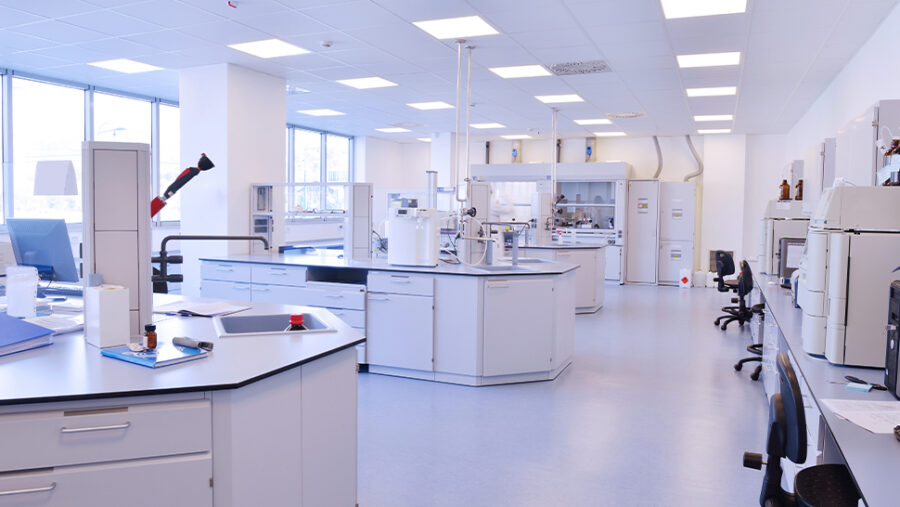

Lab space demand in Cambridge is reaching unprecedented levels, solidifying the city’s position as a key hub for research and development in the UK. Cambridge’s status as a global science and innovation hub is underscored by the city’s resilience in the face of increased demand. Strong venture capital funding in the city, ranking fourth globally in 2021, has propelled it to the forefront of the sector.
Savills recently reported that the ‘Golden Triangle’ – the triangle of Cambridge, Oxford and London – experienced a record high in science-related real estate take-up by the end of Q3 2023, with Cambridge leading the pack at 413,000 sq. ft. This marks the highest total recorded at this stage in a year, emphasising the city’s prominence in the sector.
Transactions contributing to this surge include the leasing of Building 960 at Babraham Research Campus, totalling 34,000 sq. ft, to three key tenants in the life sciences ecosystem in Cambridge. The strong momentum in the area is expected to continue, with a reported 300,000 sq. ft of leasing transactions under offer, pointing toward a positive outlook for 2024.
Companies eyeing up lab space in Cambridge need to consider several crucial factors as follows:
- Ensuring the building has sufficient power to support the unique needs of laboratory operations
- Checking whether the building or landlord can accommodate the company’s bespoke fit-out needs, which are tailored to specific research requirements
- Determining whether there is external storage for items such as nitrogen tanks
- Considering the energy and environmental performance of the space to ensure it aligns with the company’s ESG and sustainability requirements
- Ensuring the overall facilities of the building or campus of which the lab space forms part both accommodates the employees’ needs and help attract staff – such as whether there are cafes, restaurants, break-out areas, meeting rooms, changing areas, bike storage, and nearby gym facilities
- Considering accessibility – whether there is on-site parking or convenient public transport options
With limited lab space vacancy, Cambridge faces challenges, but developments, including Unity Campus in Sawston, Bourn Quarter and The Press in Foxton, alongside existing schemes such as Babraham Research Campus, Granta Park, Chesterford Research Park and Cambridge Biomedical Campus aim to address the ongoing supply and demand imbalance.
Cambridge’s demand for lab space continues to break records, affirming its pivotal role in the UK’s scientific landscape. As companies seek to establish a presence in this thriving ecosystem, careful consideration of power supply, fit-out flexibility, sustainability, and overall facilities is crucial.
Helen Mutucumarana, Partner and Head of Real Estate, Cambridge, said: “The boom of lab space in Cambridge is great for both the city and for the UK as a whole – the range of innovation taking place across the country centres in Cambridge and the wider golden triangle. It’s a win-win situation; tech pioneers are investing in the area and calling the UK ‘home’ when their technology launches.
“Investors and funders looking to the East of England will find a wealth of technology and innovation opportunities in this Hi-tech cluster.
Helen’s expertise in the innovation sector means she advises clients in an array of areas – from start-up and established technology businesses to those working in the biotech and life science fields. She helps them secure suitable, bespoke lab space in order for them to grow and continue finding solutions to a variety of emerging issues.










